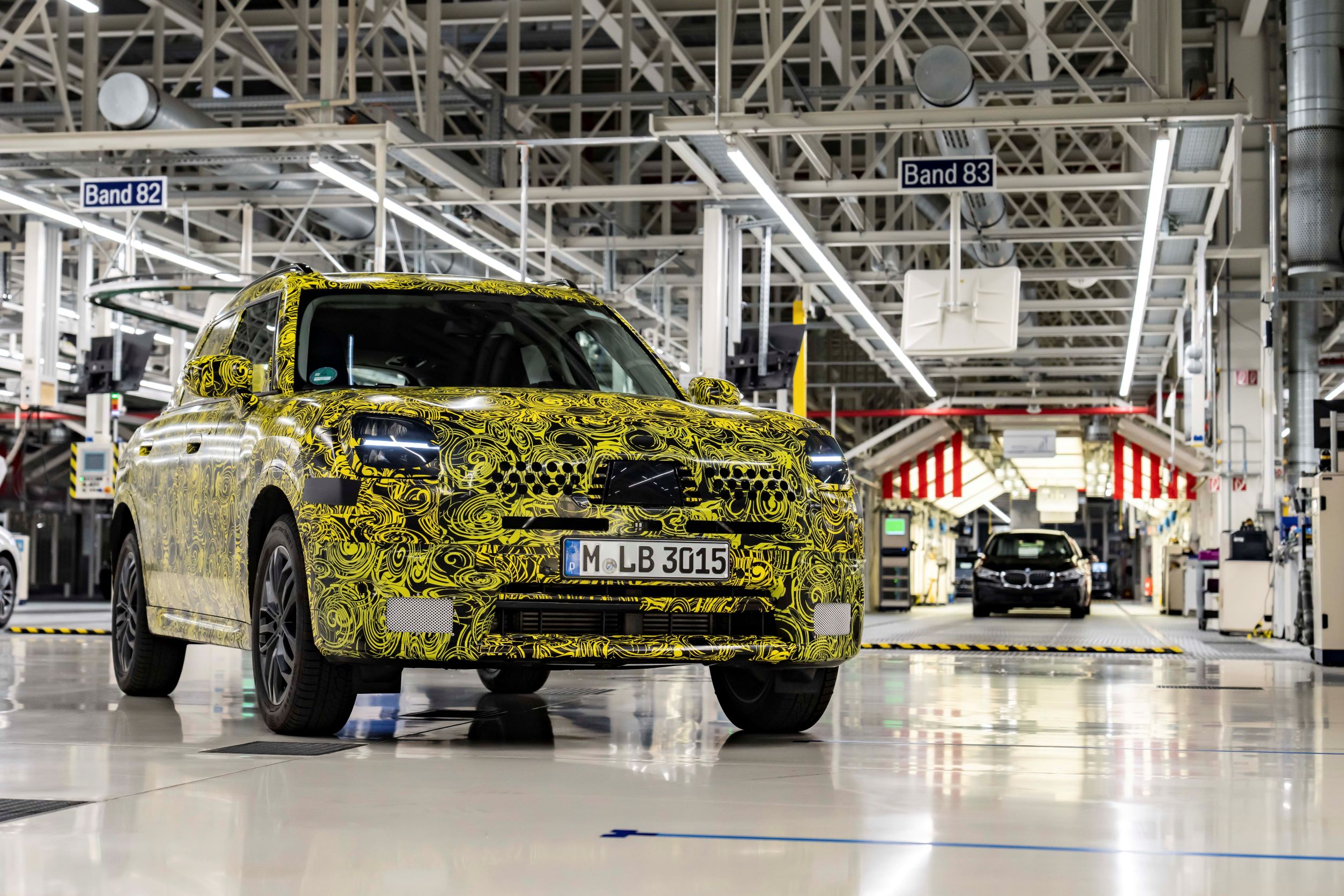BMW readies Leipzig for Mini Countryman EV
BMW is gearing up to produce its first Mini electric model in Germany from 2023.
The automaker announced in 2020 it would bring Countryman production in house after initially contracting out assembly to Magna Steyr in Austria and then VDL in the Netherlands.
The redesigned Countryman would come with front or all-wheel drive, petrol or diesel engines, or all electric drive, BMW said at the time.
“The locally emission-free all-rounder is an excellent fit for the BMW Group’s sustainable production site in Leipzig, one of the most modern and sustainable automotive factories in the world. As the company’s pilot project for establishing a “green plant,” a long-term, sustainable strategy for energy generation and consumption comes into play here,” the automaker said in a statement.
Opened in 2005, Leipzig specialises in electrification making it a particularly good production base for electric powered versions of the new Mini crossover. The site in Saxony has been described by BMW as the birthplace of group electromobility and, since 2013, manufactured over 200,000 i3 EVs, a model now out of production.
Plant director Petra Peterhaensel and Countryman project manager Sonja Hengstler are responsible in Leipzig for the transformation toward more electromobility and sustainable production of the e-components as well as the entire vehicles.
A workforce of 5,600 employees produces around 1,000 vehicles every day. The new Countryman will come off the production line together with BMW’s 1 Series, 2 Series Gran Coupé and 2 Series Active Tourer. This makes the plant the first to build both BMW and Mini brands.
The Mini’s high voltage batteries will also be made at Leipzig which will have eight separate e-component production lines by 2024 after an investment of EUR800m in a production area of 150,000 square metres. By then, 1,000 people will work in e-component production.
Part of the energy required for automotive production is generated by four wind turbines on the plant site. In 2021, 21.9GWh of electricity was generated from wind power. Since 2017 electricity has been temporarily stored in a farm of 700 i3 batteries.
BMW claims the plant was the first to use a newly developed burner technology in the paint shop which uses green hydrogen instead of natural gas. Hydrogen is also used in plant logistics and five hydrogen filling stations provide energy for 130 fuel cell-powered industrial trucks, the largest fleet in Germany.
The electric Countryman is the first new generatuib EV for the Mini brand which will be all electric by 2030.

BMW is gearing up to produce its first Mini electric model in Germany from 2023.
The automaker announced in 2020 it would bring Countryman production in house after initially contracting out assembly to Magna Steyr in Austria and then VDL in the Netherlands.
The redesigned Countryman would come with front or all-wheel drive, petrol or diesel engines, or all electric drive, BMW said at the time.
“The locally emission-free all-rounder is an excellent fit for the BMW Group’s sustainable production site in Leipzig, one of the most modern and sustainable automotive factories in the world. As the company’s pilot project for establishing a “green plant,” a long-term, sustainable strategy for energy generation and consumption comes into play here,” the automaker said in a statement.
Opened in 2005, Leipzig specialises in electrification making it a particularly good production base for electric powered versions of the new Mini crossover. The site in Saxony has been described by BMW as the birthplace of group electromobility and, since 2013, manufactured over 200,000 i3 EVs, a model now out of production.
Plant director Petra Peterhaensel and Countryman project manager Sonja Hengstler are responsible in Leipzig for the transformation toward more electromobility and sustainable production of the e-components as well as the entire vehicles.
A workforce of 5,600 employees produces around 1,000 vehicles every day. The new Countryman will come off the production line together with BMW’s 1 Series, 2 Series Gran Coupé and 2 Series Active Tourer. This makes the plant the first to build both BMW and Mini brands.
The Mini’s high voltage batteries will also be made at Leipzig which will have eight separate e-component production lines by 2024 after an investment of EUR800m in a production area of 150,000 square metres. By then, 1,000 people will work in e-component production.
Part of the energy required for automotive production is generated by four wind turbines on the plant site. In 2021, 21.9GWh of electricity was generated from wind power. Since 2017 electricity has been temporarily stored in a farm of 700 i3 batteries.
BMW claims the plant was the first to use a newly developed burner technology in the paint shop which uses green hydrogen instead of natural gas. Hydrogen is also used in plant logistics and five hydrogen filling stations provide energy for 130 fuel cell-powered industrial trucks, the largest fleet in Germany.
The electric Countryman is the first new generatuib EV for the Mini brand which will be all electric by 2030.
